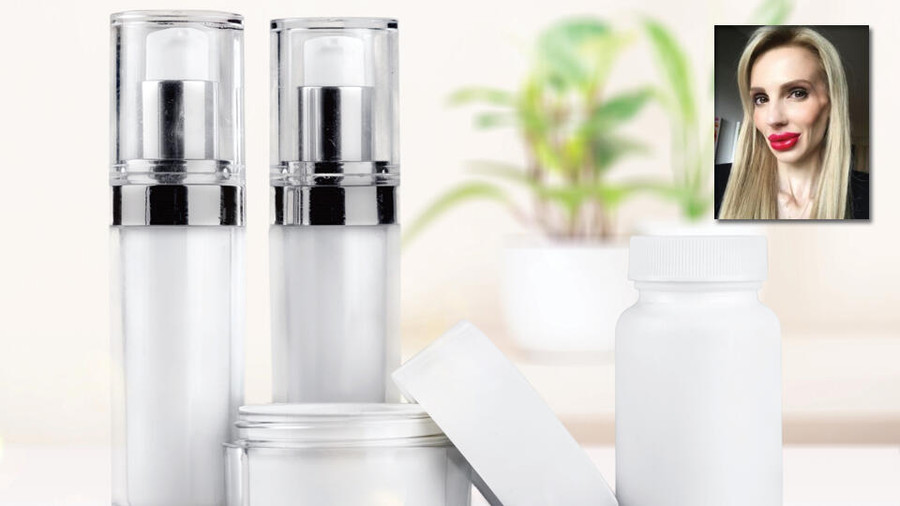Product training is essential for high-quality customer service, especially in the adult goods market dealing with the most intimate needs. But in these unprecedented times, the mode of delivery is set for a shake-up.
COVID-19 has changed life as we knew it, introducing social distancing and increased hand hygiene and sanitation of highly touched surfaces. It’s made us aware of how often we touch our face, and greet each other with a handshake, kiss or hug — habitual behaviors we’ve been advised to limit or avoid.
In a world forever changed by coronavirus, what becomes of staff product training?
Even after the pandemic peak, many of these and other preventive measures will remain in our collective memory if not in practice.
Consider this: You’re at the office with your colleagues for training on the latest lubricants. Seated closely around a communal table, flavored lubricants are passed from one colleague to the next. You’re invited to taste each delicious option.
In days gone by, my colleagues loved this training session. “Where else can you eat lube for breakfast?” they’d laugh, savoring silky-smooth dollops on the back of their hand while satisfying their hunger for product knowledge.
Sure, we used alcohol-based hand-sanitizing wipes and avoided touching bottle openings but the idea of conducting those sessions now feels uncomfortable.
Would lubricants taste as sweet with a fear of contagion served on the side? Would my colleagues even want to taste them?
In a world forever changed by coronavirus, what becomes of staff product training?
The show must go on
For adult goods retailers, product training looks to become more important than ever post-corona, with stay-at-home rules prompting a surge in sales, particularly to new users.
Especially in ecommerce, where customers cannot have the “try before you buy” experience via product displays in brick-and-mortar stores, they rely on retailers for help.
After my colleagues indulged in the smorgasbord of adult appetizers, they knew the differences between espresso and tiramisu-flavored lubricants; between pineapple and tropical; and even how to use them in the kitchen.
Their in-depth knowledge of these and other products allows them to answer customer queries, in most cases, at first instance.
Their ability to clearly and confidently explain, without jargon, what a product can and can’t do, what makes it unique and how it compares against competitors, increases the possibility of a sale and, more importantly, customer satisfaction.
For some subjects, learning via reading will suffice. But for adult goods, where sensory stimulation is the raison d’être, the best training engages sight, sound, smell, touch and taste.
Enter stage right: product samples.
Rewriting ‘business as usual’
It’s commonplace for brand ambassadors to run product trainings with an array of samples “on tour” so to speak.
These samples are seasoned performers, in action everywhere from large-scale trade shows to one-on-ones at an office.
During training, samples are handled by presenters and attendees, eager for their meet-and-greet. If it marks the end of the “tour,” attendees are often invited to take their favorites home.
It’s a cost-effective and space-saving way of granting product access to a wide audience, particularly for brand ambassadors with itineraries crossing oceans and spanning months.
But with coronavirus reportedly staying active on some surfaces for many days, should adult toys be sanitized after contact with each person at a training and, so too, everyone’s hands? Should we advise against the personal use of products “retired” from the show circuit?
These and other questions present an opportunity for us to take stock — quite literally.
Given our awareness of how to minimize the spread of coronavirus we have a responsibility to act accordingly. In the context of product training, one option is to provide fresh samples at each group session if not to each attendee.
As stay-at-home rules prove the arrangement can indeed be effective, we may see more employers offering this opportunity and, in turn, more trainings being conducted remotely. In this scenario, samples for each attendee become increasingly important as audio-visual training neglects the remaining senses. How beneficial would you find lubricant training, at home, without access to any samples?
There’s no denying that COVID-19 has resulted in financial strain for many. So, the idea of giving away more samples may at first seem an unnecessary burden, perhaps even a freeloading ploy.
Quite the contrary.
Giving staff products to have and to hold — for themselves alone — increases learning and knowledge retention, especially when the cue is easily accessed in their bedside drawer. The resultant passion and enthusiasm for the product is often palpable, influencing customers. It is, for want of a more fitting word, infectious.
Can you guess which lubricant brand is among the most popular at our online store? Let’s say it’s the word on everyone’s lips — and did I mention each colleague left training with new samples?
So, to the inevitable question of who pays: manufacturer, distributor, retailer or some combination?
As with adult goods themselves, there is no one-size-fits-all solution; it depends on the parties involved in each scenario.
What we need to do now most is just start the discussion.
With awareness comes responsibility, and an opportunity to change for the better. Let’s work to implement the most safe and effective product training methods for the good of the individual and whole industry in this new era.
Vanessa Rose is product expert and digital content editor at a major online retailer of adult goods. She has a background in psychology, gender studies and corporate wellness, and likes to get physical as a qualified personal trainer.







